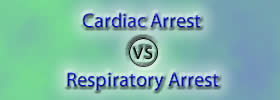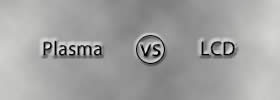Difference between Would and Could
Key difference: ‘Would’ implies that something will most probably happen. ‘Could’ implies that something can happen, there is nothing stopping, but whether it will happen or not is unsure.

Both, would and could are types of modal verbs in the English language. Modal verbs are a small class of auxiliary verbs used mostly to express modality. Modality is basically a possibility or an obligation. Other modal verbs include can, might, may, must, shall, should, and will.
According to Dictionary.com, the term ‘would’ is described as:
- A simple past tense and past participle of ‘will’.
- (Used to express the future in past sentences): He said he would go tomorrow.
- (Used in place of will, to make a statement or form a question less direct or blunt): That would scarcely be fair. Would you be so kind?
- (Used to express repeated or habitual action in the past): We would visit Grandma every morning up at the farm.
- (Used to express an intention or inclination): Nutritionists would have us all eat whole grains.
- (Used to express a wish): Would he were here!
- (Used to express an uncertainty): It would appear that he is guilty.
- (Used in conditional sentences to express choice or possibility): They would come if they had the fare. If the temperature were higher, the water would evaporate.
- Would have, (used with a past participle to express unfulfilled intention or preference): I would have saved you some but Jimmy took it all.
Dictionary.com describes ‘could’ as:
- A simple past tense of can.
- (Used to express possibility): I wonder who that could be at the door. That couldn't be true.
- (Used to express conditional possibility or ability): You could do it if you tried.
- (Used in making polite requests): Could you open the door for me, please?
- (Used in asking for permission): Could I borrow your pen?
- (Used in offering suggestions or advice): You could write and ask for more information. You could at least have called me.
Essentially, the difference between would and could is in the manner that they are used, as they give a different impression of things. Consider these sentences:
- We would go to a restaurant. - This implies that we will most probably go to the restaurant.
- We could go to a restaurant. – This implies that we can go to the restaurant, but it is unsure whether we will.
Further examples of ‘would’:
- If I were president, I would cut the cost of education.
- If I were president, I would not raise taxes.
- He told me he would be here before 8:00.
- I said I wouldn't help you.
- When I was a kid, I would always go to the beach.
- When he got older, he would never do his homework
- Even as a boy, he knew that he would succeed in life.
- She said that she would buy some eggs.
- Why didn't you bring your umbrella? I told you it would rain!
- Yesterday morning, the car wouldn't start.
- Every weekday my father would come home from work at 6pm and watch TV.
- We would always argue. We could never agree.
- I would climb the tree if I could.

Further examples of ‘could’:
- Could you please look after my children for one hour?
- She said she could meet us at the corner.
- I could watch TV everyday when I was a kid but now I can't.
- I could answer, because I knew the answer.
- Could you play the guitar?
- John could run 5 miles when he was young.
- Could you pass me the letter, please?
- If you could climb that tree would you?
- I could see you tomorrow.
- Could you tell me how to get to the train station from here?
- Could you tell me how long I’ll have to wait until I can see the doctor?
- Mary said she could come to the party tonight.
- Yesterday, I couldn’t find my wallet anywhere.
Image Courtesy: kara.allthingsd.com, buzznet.com









Add new comment